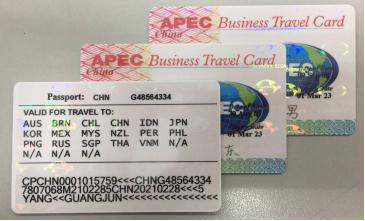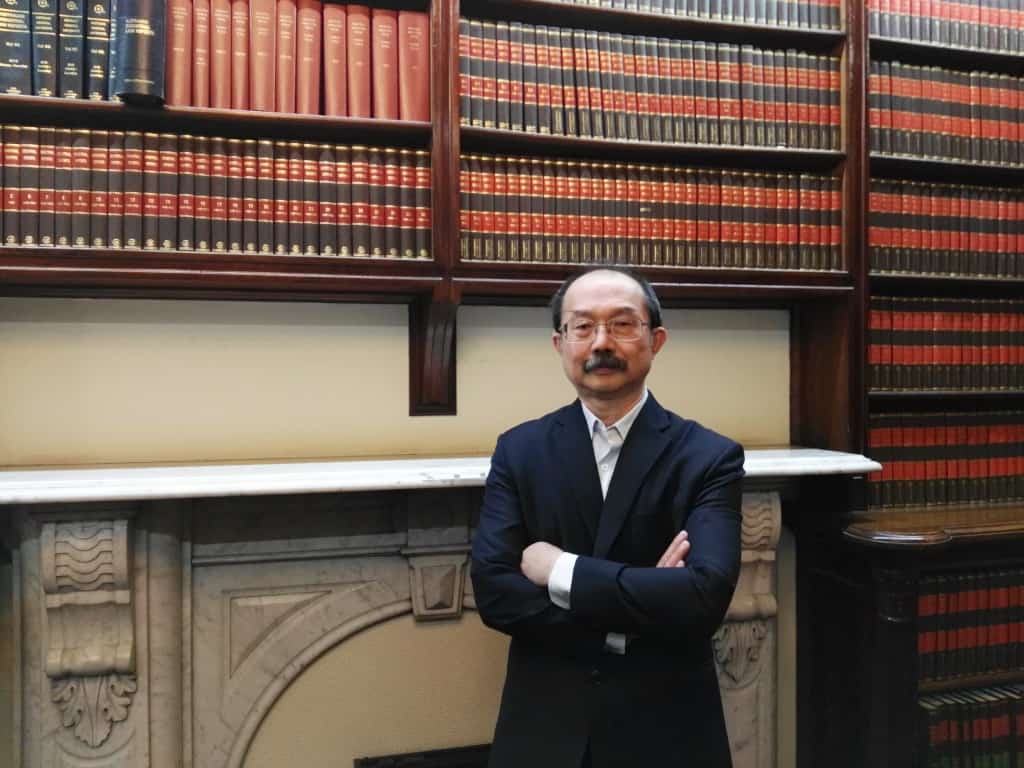
APEC Business Travel Card or ABTC (Asia-Pacific Economic Cooperation) is a card issued to business travellers and senior government officials.
Who can apply for APEC Business Travel Card?
Eligible applicants from the currently fully participating 19 countries may apply for an ABTC:
- Australia
- Brunei Darussalam
- Chile
- China
- Hong Kong SAR
- Indonesia
- Japan
- Korea
- Malaysia
- Mexico
- NZ
- Papua New Guinea
- Peru
- Philippines
- Russian Federation
- Singapore
- Republic of Taiwan (Chinese Taipei)
- Thailand
- Vietnam
Note: Canada and the US are transitional members to the ABTC scheme (not a full participating member yet)
Benefits of having an ABTC?
ABTC holders do not require a visa to enter any one of the above 19 APEC countries and are granted pre-clearance.
In addition, ABTC holders are given fast-track entry and exit immigration lanes at participating airports.
Do I still need a passport to travel?
The APEC Business Travel Card is not intended to replace your passport. You will be required to present your passport and ABTC on arrival and departure.
Do I need a visa to travel to APEC countries?
Holders of ABTC are only exempted from applying for a visa only to countries listed at the back of the ABTC, for e.g., if “AUS” is listed on the back of your card, then you do not have to apply for a visa to enter Australia. If pre-clearance has not been granted then you will need to apply for a visa prior to travel to Australia. Even if you are travelling to a country not listed on the back of your ABTC, you can still use the fast-track lane in APEC countries’ airports.
If you have pre-clearance to travel to Australia, you will be able to visit Australia for short-stay business purposes for a maximum stay of up to three months or 90 days at a time.
How do I know if I am eligible to apply for APEC Business Travel Card?
Each participating country has their own set of eligibility criteria for ABTC applicants.
Generally, applicants must be business person who:
- Are citizens of participating APEC countries but in Hong Kong SAR, permanent residents holding a Hong Kong permanent identity card
- Have never been convicted of a criminal offence
- Hold a valid passport or valid travel document
- Genuine business persons who may need to travel frequently on short term visits within the APEC region to conduct business
- Senior government officials actively engaged in APEC business
An APEC Business Travel Card is usually valid for 5 years. When travelling on an ABTC, you must also bring along your valid passport. You must renew your ABTC if you have renewed or replaced your visa.
Can I use APEC Business Travel Card for non-business purposes?
Some APEC countries may allow entry for ABTC holders for tourism purposes. If you are travelling to Australia, your ABTC will allow you to:
- Engage in trade and investment activities
- Investigate, negotiate, sign or review a business contract
- Participate in conferences, trade fairs or seminars
- Holiday
- Visit family and friends
Who cannot use APEC Business Travel Card?
ABTC cannot be used for travel by:
- Students
- Business person’s spouse and children
- Those who wish to engage in paid employment or a working holiday
- Professional athletes, news correspondence, entertainers, musicians, artists or persons engaged in similar occupations
Australian migration law is complex and difficult to understand, contact our immigration lawyer for a consultation (fee applies) to help you decide if an APEC Business Travel Card is suitable for you or click here to find answers to your questions.

 041 222 4020 or WeChat: AUDvisa
041 222 4020 or WeChat: AUDvisa
This article is not intended to be or taken as migration legal advice. The author of this article disclaims any liability for any action or omission on the information provided or not provided in this article. You should always consult an immigration lawyer or a registered migration agent to form an informed opinion on your immigration matter.



